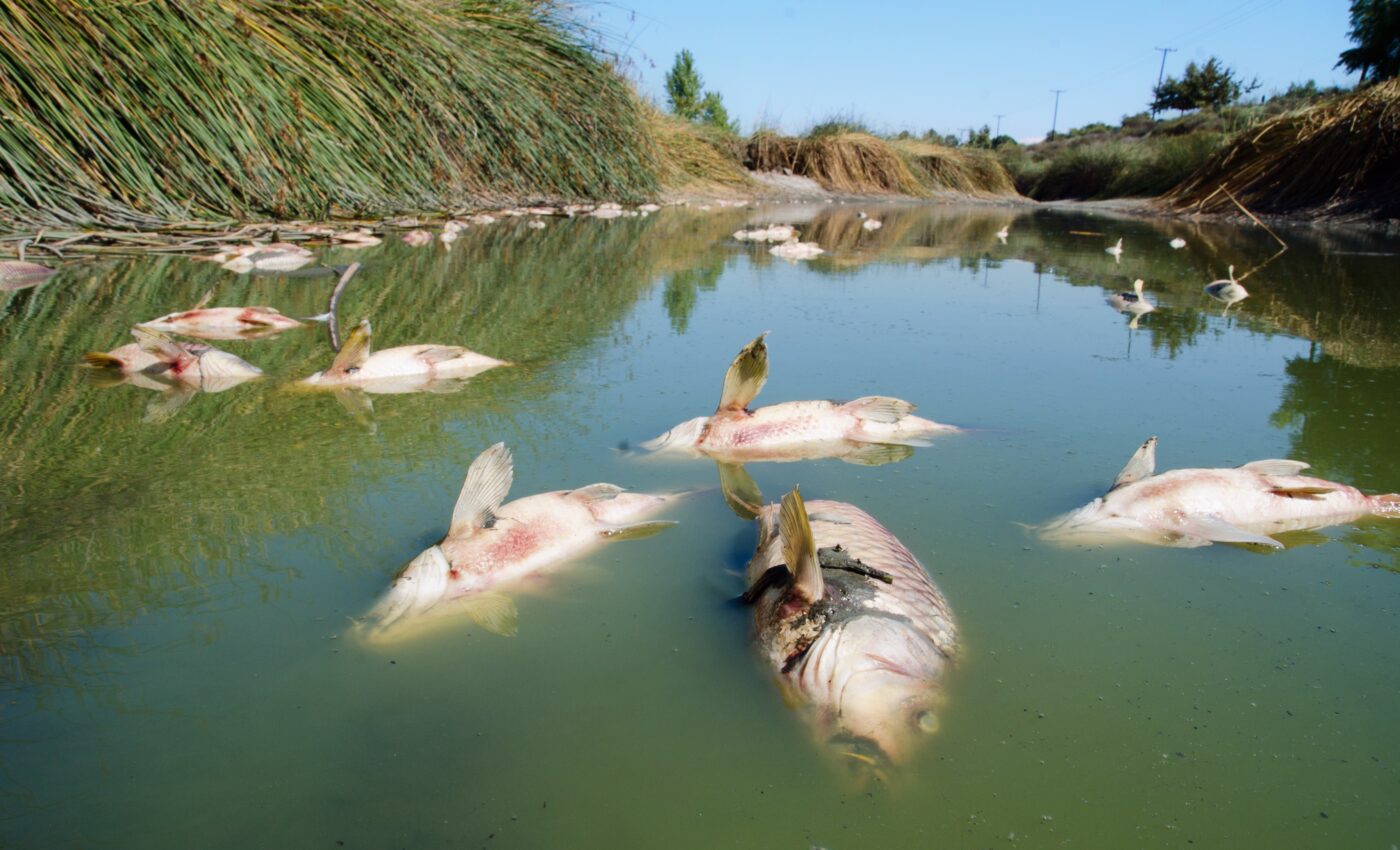
Fish die-offs are intensifying with climate change
As global temperatures have risen, so has the prevalence of fish mass die-offs, according to a new study led by the University of Arkansas. Such catastrophic events can have severe impacts on the function of a variety of ecosystems, endangering fish populations and reducing the global food supply. The experts argue that the frequency of these events is steadily increasing, with potentially dire consequences for the whole world if greenhouse emissions are left unchecked.
The scientists compiled 526 documented cases of fish die-offs which occurred across the Minnesota and Wisconsin lakes between 2003 and 2013, and discovered that the main causes of these events were infectious diseases, summerkills, and winterkills. By narrowing their focus to summerkills – fish mass mortality linked to rising temperatures – they found a strong correlation between local air and water temperatures and the occurrence of such events. Their models that used either air or water temperature led to similar results – an important aspect, since air temperature data is more widely available globally than water temperature data.
After establishing a historical baseline, the researchers used air and water temperature-based models to estimate the frequencies of future summerkills. Local water temperature projection models estimated an approximate six-fold increase in the frequency of fish die-offs by 2100, while local air temperature projections predicted a staggering 34-fold increase.
“If there are eight summerkills per year now, the models suggest we could have about 41 per year based on water temperature estimates or about 182 per year based on air temperature estimates,” explained study lead author Simon Tye, a doctoral student in Evolutionary Ecology at the University of Arkansas.
“We think predictions from the water temperature model are more realistic, whereas predictions from the air temperature model indicate we need to better understand how and why regional air and water temperature estimates differ over time to predict how many mortality events may occur.”
Overall, the analysis revealed a strong correlation between rising temperatures and the frequency of ecological disasters. While the study only used data related to temperate northern lakes, the results could also apply to lakes in Arkansas. “One of the findings of the paper is that similar deviations in temperature affect all types of fish, such that a regional heatwave could lead to mortalities of both cold- and warm-water fish,” Tye said.
“Specifically, climate change is more than gradually increasing temperatures because it also increases temperature variation, such as we experienced much of this summer. In turn, our findings suggest these rapid changes in temperature affect a wide range of fish regardless of their thermal tolerance,” he concluded.
The study is published in the journal Limnology and Oceanography Letters.
—
By Andrei Ionescu, Earth.com Staff Writer













